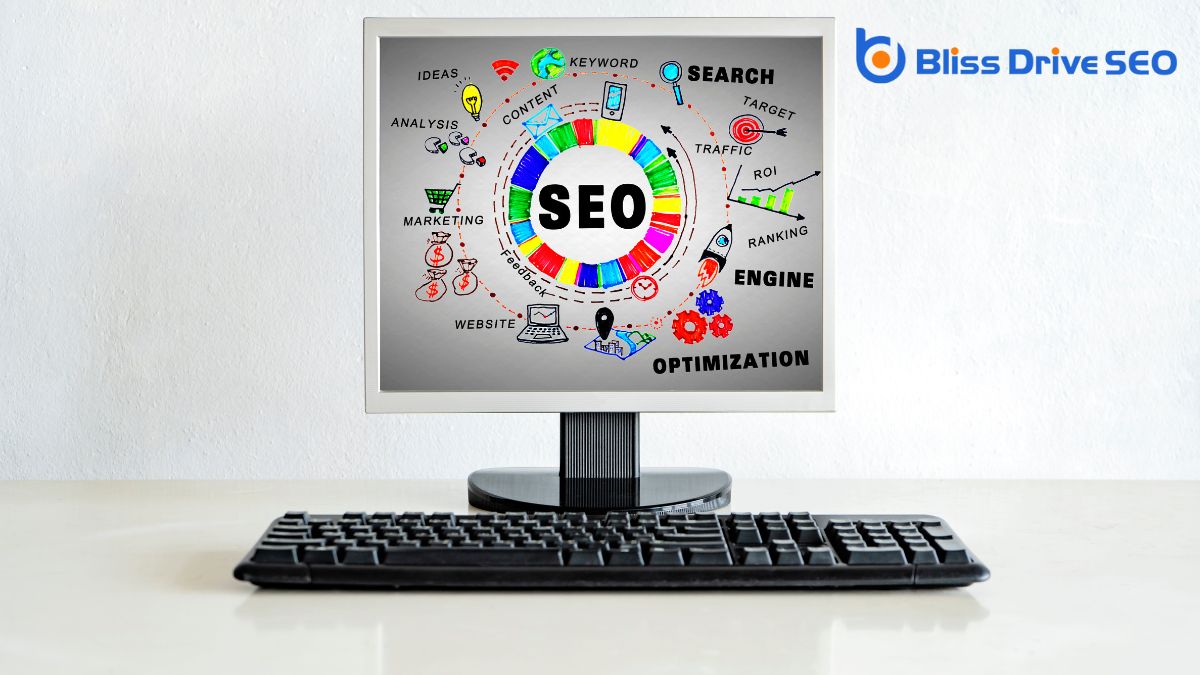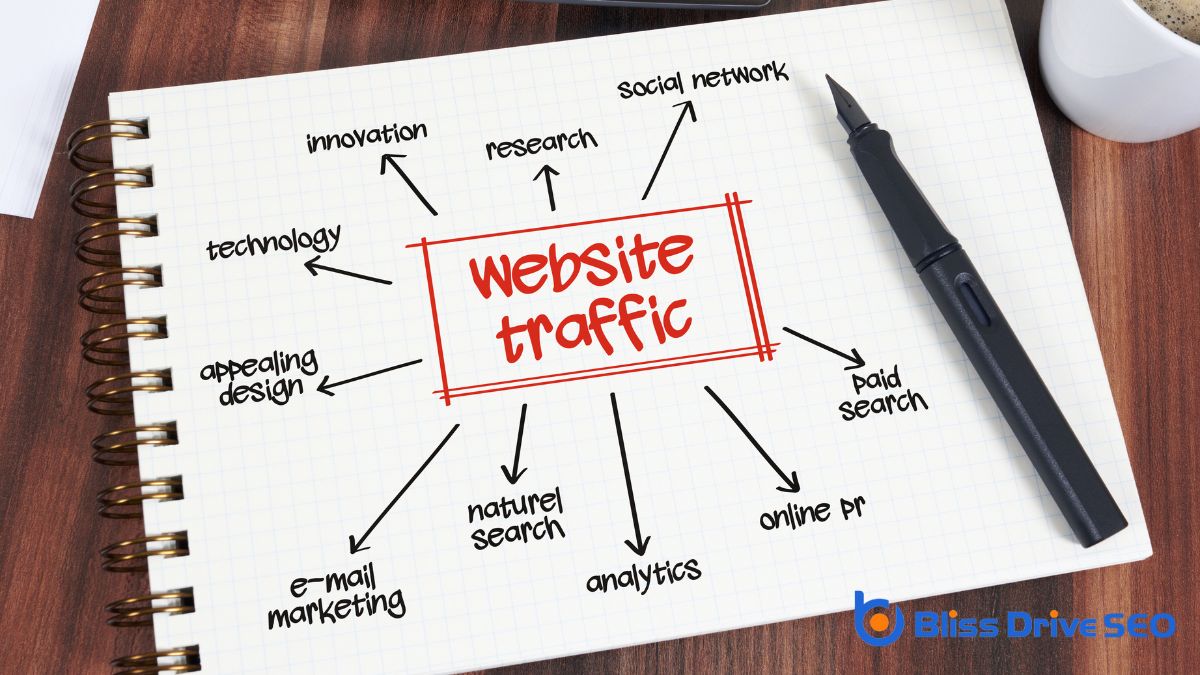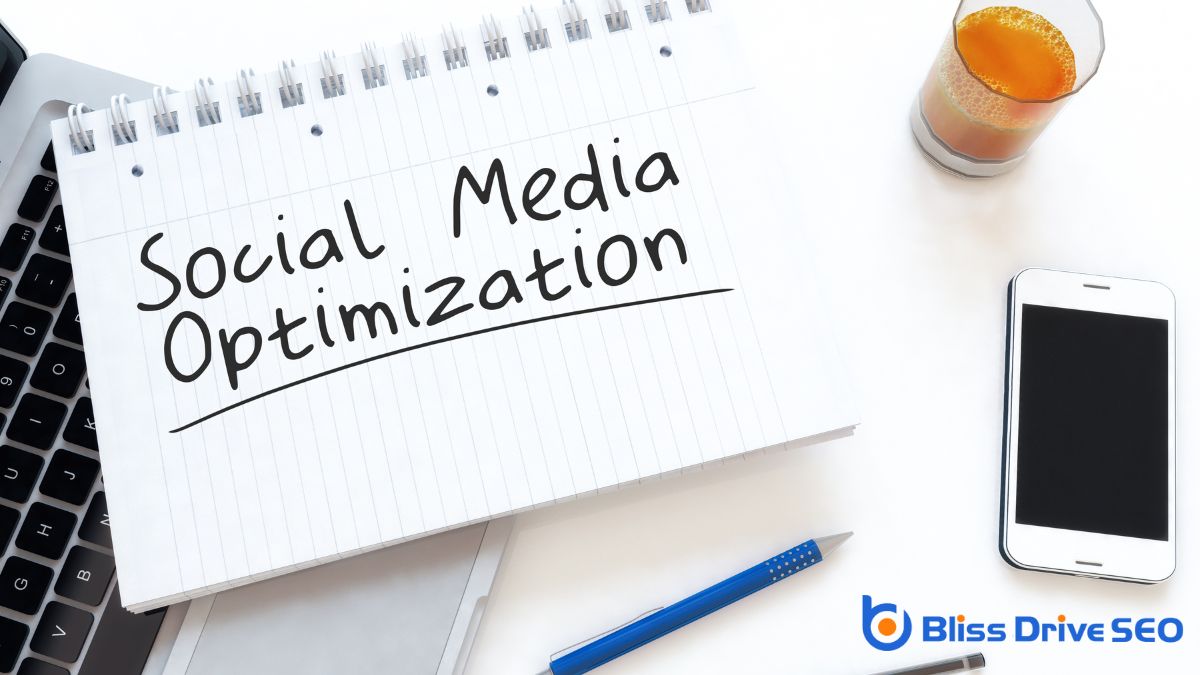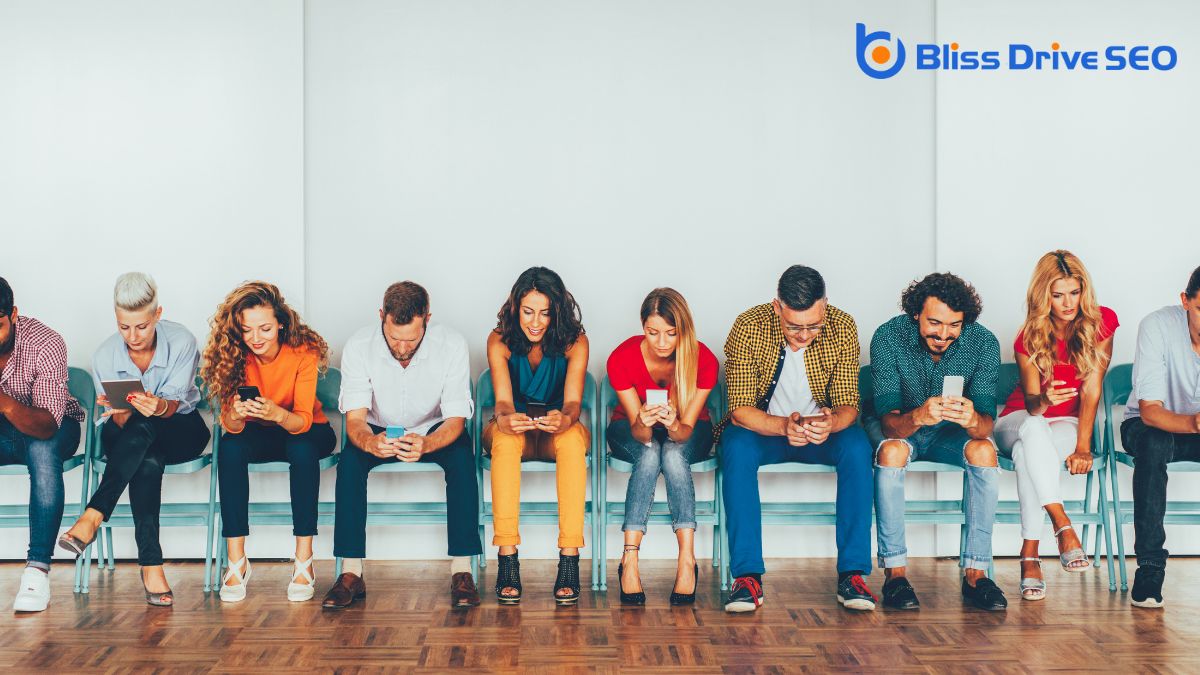Digital Marketing Services
Learn More About Us

Social media influences off-page SEOOptimization actions taken outside the website, primarily involving backlinks and social media. by boosting your website's visibility, credibility, and authority. When you share engaging content, it reaches a wider audience and generates valuable backlinksLinks from other websites pointing to your website, crucial for SEO., which improve your domain authority. Social interactions like likes, shares, and comments act as social signals that search engines consider for rankingsThe position at which a website appears in the SERP.. Plus, consistent brandingThe process of creating a unique name, design, and image for a product or service in the consumer's ... and strategic keyword usage on social media profiles enhance search engine visibility. Active engagementThe interactions that users have with a brand’s content on social media. and compelling visuals can drive more traffic to your site, ultimately improving your SEO performance. Continue to explore how social media actions can elevate your off-page SEO strategy.
In today's digital landscape, social signals from platforms like FacebookA social networking site where users can post comments, share photographs, and links to news or othe..., TwitterA microblogging and social networking service where users post and interact with messages known as "..., and LinkedInA professional networking site used for career and business networking. are more vital than ever for off-page SEO. These social signals, which include likes, shares, and comments, directly impact your search engine rankings. Google recognizes them as indicators of website authority, making it essential for you to prioritize social media engagement.
When users interact with your content on social media, it boosts your online reputation and visibility. This increased engagement isn't just vanity metrics; it's an important factor that contributes to your off-page SEO performance.
The more your content is shared and discussed, the more credible and authoritative your website appears to search engines.
Social media influence goes beyond simple interactions. It plays a significant role in enhancing your website's credibility and domain authority. By encouraging social shares and interactions, you're effectively building a network of trust and reliability around your brand.
This trust translates to higher search engine rankings, as Google favors websites with strong social signals.

Harnessing the power of social media can greatly enhance your website traffic. When your content gets social media shares, it reaches a broader audience, potentially driving more visitors to your site. Engaging posts that resonate with your audience can leadA potential customer referred by an affiliate who has shown interest in the product or service but h... to likes, comments, and further shares, increasing your content's visibility. This kind of interaction is vital for off-page SEO strategies, as it can result in higher click-through rates to your website.
By consistently posting valuable content on platforms like Facebook, Twitter, and InstagramA photo and video-sharing social networking service owned by Facebook., you encourage users to click through to your site. The more engaging your content, the more likely users are to visit your website and explore further. Social media shares act as endorsements, making your content appear more credible and appealing to potential visitors.
Moreover, an increased social media presence can amplify your content's reach, drawing more traffic and improving your site's overall SEO performance. Utilizing social media effectively means not just posting content but actively engaging with your audience. Respond to comments, join conversations, and encourage sharing.
To enhance your brand visibility on social media, focus on using consistent branding elements across all platforms. Pair engaging visual contentImages, videos, and other visual elements used to engage users and improve conversion rates. with strategic keyword usage to capture attention and improve searchability. This approach not only builds brand recognitionThe ability of consumers to identify a brand by its attributes, such as logo, color, or packaging. but also boosts your credibility and authority online.
A strong and consistent branding presence across social media profiles greatly enhances your brand's visibility and recognition. By maintaining uniform logos, colors, and messaging, you create a cohesive brand imageThe perception of a brand in the minds of consumers, shaped by advertising, word of mouth, and exper... that resonates with your audience. Consistent branding elements not only make your brand more recognizable but also reinforce your brand identityThe visible elements of a brand, such as color, design, and logo, that identify and distinguish the ..., making it easier for users to identify and engage with you across different social media channels.
Consistent branding is a powerful tool for enhancing your brand's visibility and building a strong, trustworthy online identity.
When your social media profiles consistently reflect your brand's identity, you foster trust and credibility with your followers and potential customers. People are more likely to remember and engage with a brand that presents itself uniformly across various platforms. This consistency signals to users that your brand is reliable and professional, which can notably boost your brand visibility.
Moreover, consistent branding elements strengthen your online presence, allowing you to stand out in a crowded digital landscape. By creating a uniform and recognizable brand image, you establish that your audience can easily find and interact with your content, regardless of the platform they're using. In short, consistent branding is a powerful tool for enhancing your brand's visibility and building a strong, trustworthy online identity.
When you incorporate engaging visual content into your social media strategyA plan that outlines the goals, tactics, and metrics for social media marketing efforts., you significantly enhance your brand's visibility and engagement. Visual content isn't just eye-catching; it's a powerful tool that can notably boost your online presence. On social media platforms, visual content generates 650% more engagement than text-only posts. This means your audience is more likely to interact, share, and remember your brand.
Consider these compelling statistics:
Engaging visual content grabs your audience's attention, but strategic keyword usage guarantees they can find you in the first place. When you optimize your social media profiles with relevant keywordsWords or phrases that users type into search engines to find information., your brand's visibility in search engine results improves significantly.
Think about it: if your profile includes industry-specific terms, you're more likely to appear in searches related to your nicheA specific segment of the market targeted by affiliates to promote products or services..
Embedding keywords in your social media posts also plays an essential role. When users search for content related to your industry, posts with the right keywords will stand out. This not only enhances the chances of being discovered but also drives more traffic to your profiles.
SEO benefits from proper keyword placement in captions and descriptions, too. When you describe your posts with precise, relevant terms, search engines recognize your content's relevance, boosting your rankings. This, in turn, enhances brand recognition and helps you reach a broader audience.
Incorporating strategic keywords into your social media content isn't just about appearing in searches; it's about positioning your brand as a leader in your field. By doing so, you contribute to higher search engine rankings and greater overall visibility.
To effectively enhance your off-page SEO, building backlinks through social media is indispensable. By leveraging social media shares and mentions, you can generate valuable backlinks that enhance your website's authority and relevance. These backlinks signal search engines about your site's credibility, which can greatly enhance your search engine rankings and organic trafficVisitors who come to a website through unpaid search engine results..
When you focus on creating quality backlinks from social media profiles, you're not just improving your off-page SEO profile; you're diversifying your link sources. This diversification is pivotal for maintaining a healthy off-page SEO profile. Engaging with influencersIndividuals with the power to affect the purchasing decisions of others due to their authority, know... and crafting shareable content can naturally lead to more backlinks, further enhancing your off-page SEO efforts.
To make the most out of social media for building backlinks, consider the following strategies:
Your domain authority is a key factor in how search engines rank your website, and an active social media presence can greatly boost it. When you regularly engage on social media, you increase the likelihood of your content being shared. These social media shares not only drive traffic but also signal to search engines that your site is credible and valuable.
By consistently posting quality content, you enhance your domain authority over time. Each interaction, share, and comment helps build credibility, showing search engines that your site is trustworthy. This increased credibility can lead to better search engine rankings, as domain authority is closely tied to how search engines perceive the trustworthiness of your site.
Additionally, an active social media presence can lead to valuable backlinks. When your content is widely shared and discussed, other websites are more likely to link back to it. These backlinks are essential for improving domain authority, as they're a strong indicator of your site's relevance and quality.

When optimizing your social profiles, start by integrating relevant keywords to boost your visibility in search results.
Confirm your branding elements are consistent across all profiles to enhance recognition and credibility.
Don't forget to include your website link to drive traffic and improve your off-page SEO.
Optimizing your social media profiles with relevant keywords is an essential strategy for enhancing visibility and searchability on search engines. By incorporating targeted keywords into your profiles, you can greatly improve your off-page visibility and attract more organic traffic to your website. It's all about making sure your social media presence isn't only engaging but also easily discoverable.
When you integrate keywords effectively, you ensure that your social profiles align with search engine algorithms, leading to better indexing and higher rankings. Here's why you should focus on keyword integration:
Creating a cohesive and recognizable brand on social media is essential for building trust and credibility with your audience. When you maintain consistent branding elements across all your social profiles, you're not only improving brand recognition but also making it easier for your audience to recall your brand.
This consistency helps to create a unified visual identityThe visual elements of a brand, including logo, typography, colors, and design elements., which is pivotal for establishing a strong online presence.
To optimize your social profiles, start by incorporating relevant keywords in your profile descriptions. This enhances your search engine visibility, making it easier for potential customers to find you when they search for related terms.
Additionally, use the same colors, logos, and imagery across all platforms to reinforce your brand's visual identity.
Including a link to your main website in your social profiles is another effective strategy. This not only redirects traffic to your site but also boosts your overall online presence.
A well-optimized profile attracts more organic traffic, which translates to higher engagement and better off-page SEO results. By focusing on consistent branding elements, you're setting a strong foundation for long-term success in the digital landscape.
Crafting content that users find shareable is a game-changer for your brand's engagement and visibility. When you create shareable content, it not only enhances your engagement but also encourages users to interact more deeply with your brand. This interaction can lead to your posts going viral, thereby reaching a far wider audience than you might've initially anticipated.
To make your content shareable, focus on making it visually appealing and informative. This increases the likelihood of shares and can even generate valuable backlinks, which are important for off-page SEO. Here's how you can create content that people want to share:
The more users share your content on social media, the greater the boost in brand visibility and website traffic. This positive ripple effect significantly improves your off-page SEO efforts.
To maximize your social media impact on SEO, start by researching effective hashtags related to your industry.
By integrating relevant keywords into your posts, you'll not only enhance visibility but also improve search engine rankings.
This dual approach boosts both engagement and organic traffic.
Effective hashtag research is a game-changer for boosting your social media presence and off-page SEO. By effectively leveraging hashtags, you categorize your content, making it more discoverable on platforms like Instagram, Twitter, and LinkedIn. Researching relevant hashtags for your industry topics increases both visibility and engagement, giving your posts a broader reach.
When you incorporate keywords into your social media content, you're not only improving your search engine rankings but also making your posts easier to find. Relevant keywords and hashtags help users discover your content organically, which can notably enhance your social media performance.
To maximize your hashtag research:
Integrating keywords and hashtags effectively into your social media strategy greatly enhances both discoverability and SEO performance. Hashtags categorize content, making it easier for users on platforms like Instagram and Twitter to find your posts. By researching relevant hashtags for your industry topics, you can increase visibility and boost engagement. This, in turn, drives more traffic to your social media profiles and website.
Incorporating keywords into your social media content is essential. When you use industry-specific keywords in your posts, you improve their discoverability and overall SEO performance. Search engines recognize these keywords, which can help improve your rankings.
As a result, always include relevant keywords in your captions, posts, and even image descriptions.
Don't overlook the importance of your social media profile, either. Adding pertinent keywords to your bio and descriptions can greatly enhance your profile's search engine recognition. This means when someone searches for those keywords, your profile is more likely to appear in the results.
Engagement on social media is vital for enhancing your off-page SEO efforts. When users interact with your social media content through likes, comments, and shares, it signals to search engines that your content is relevant and popular. This higher level of user interactionAny action taken by a user on social media, such as likes, comments, shares, or retweets. can lead to increased visibility and improved search engine rankings.
Here are some strategies to encourage engagement on your social media posts:
Encouraging user interaction not only boosts your off-page SEO efforts but also helps build a loyal audience. Active engagement on social media can lead to more social shares and increased organic traffic to your website.
Social media platforms reward content that sparks conversations and interactions, making it a vital factor in influencing off-page SEO performance. By focusing on engagement, you can generate valuable backlinks and enhance your overall SEO strategy.

To gauge the effectiveness of your social media efforts on off-page SEO, tracking social media impact is crucial. By monitoring social signals—such as likes, shares, and comments—you can evaluate how well your content resonates with your audience. This data helps you refine your off-page SEO strategies, making them more efficient over time.
Tracking social media metricsQuantitative measurements used to gauge the effectiveness of social media marketing efforts. provides valuable insights into your brand awarenessThe extent to which consumers are familiar with the qualities or image of a particular brand. and how frequently your content is shared. These factors directly impact search engine rankings. When your content is shared widely, it indicates to search engines that your site is valuable and relevant, which can enhance your rankings.
By analyzing these metrics, you can optimize your SEO campaigns to better align with your audience's preferences. For example, if you observe a specific type of post receives more engagement, you can create similar content to enhance your off-page SEO efforts.
Ultimately, enhanced search rankings often result in increased website traffic, which can be traced back to your social media efforts. By dedicating time to monitoring social media, you make certain that your SEO strategies are data-driven and efficient, leading to sustained online growth.
Your social media activity impacts off-page SEO by generating backlinks, increasing brand visibility, and driving traffic to your site. Engaging with followers signals content relevance to search engines, boosting your search rankings and overall online presence.
Your social media activity boosts SEO by creating backlinks, increasing brand visibility, and generating social signals like likes and shares. Optimized profiles enhance searchability, while active engagement drives organic traffic, improving your website's overall online presence and relevance.
You gain significant benefits from off-page SEO in social media. It drives traffic, boosts brand visibility, and builds valuable backlinks. Active engagement on social platforms improves your search engine rankings and enhances your overall online presence.
The most crucial factor of off-page SEO is building high-quality backlinks from authoritative websites. You need to focus on getting natural and relevant backlinks, as they greatly enhance your website's credibility, search engine rankings, and organic traffic.
You've seen how social media influences off-page SEO. By leveraging social signals, boosting traffic, and enhancing brand visibility, you're setting your site up for success. Building backlinks and improving domain authority is critical, and creating shareable content is key. Don't forget to use hashtags and keywords effectively and encourage engagement. Always monitor your social media impact to adjust strategies as needed. Embrace these tactics, and you'll see your SEO efforts flourish.
